Union-Busted & Blacklisted: How Police Crush Community Mental Health Crisis Worker Reform, Part 2
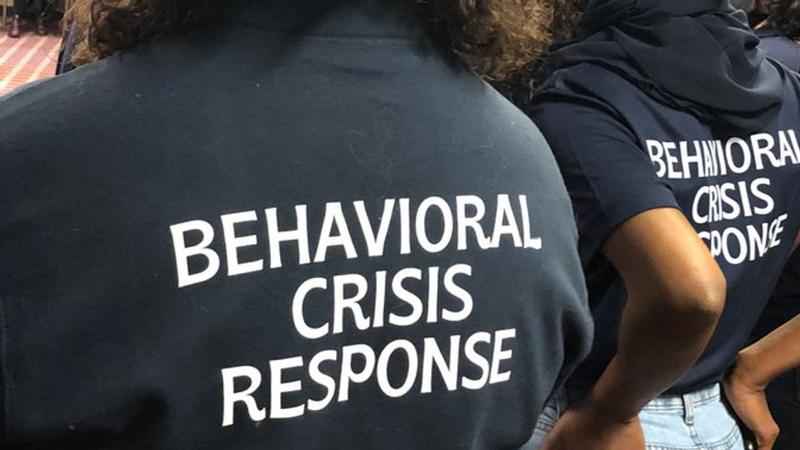
Summary:
Interview with Roslyn who shares her experiences with systemic oppression in labor organizing and police reform efforts. She helped unionize HealthReach, a healthcare program for the homeless, but management crushed the effort by firing unionized staff and hiring replacements.
Years earlier, Roslyn was arrested for filming police misconduct, gaining national attention when video evidence proved her innocence. Despite this, she faced ongoing police retaliation. A decade later, when she joined a mental health crisis response team, she was fired within days after officers refused to work with her due to her activist past.
Bio: Roslyn (pseudonym) has worked in community mental health since 2015 in both clinic and primary care medical settings. Her clients tend to present a wide range of concerns, including: life after incarceration, depression, anxiety, OCD, grief, and substance abuse.
To read part I:
Jeff Jones (Liberation Psychotherapy): I'm curious about this story that happened to you that ties into your union organizing work. I think 10 years ago now, because it does lead into the current political and social climate. That is the authoritarianism that we are dealing with. Can you tell us about it?
Roslyn: So that story weirdly started 12 years ago. Then just two years ago, I was fired from my job that I was negotiating a union contract for but had to eventually leave. After leaving Community Resources, Inc., I ended up hopping around. Moved to a different organization but didn't love it. I was working with kids and they ended up being way too young for me. It was clear we were using the wrong interventions because our society doesn't have what these kids need. Which are just homes that are not in dire poverty. So we're sending psychotherapists into these homes to work with two and three-year-olds. I was just, no, this isn't what I thought it would be.
Sadly, I left after realizing it just didn't feel like I was doing the right thing. I then worked on an ACT team for a while where they shamed us for speaking openly about our salaries.
This is where I have to tell the backstory. From the ACT team, I went to this county crisis response team. Ours was called the forensic intervention team (FIT).
But way back before grad school when I was just doing community organizing I was doing a lot of social justice work. We had a community space we had founded.
One evening, about twelve years ago, while I was hanging out at home the police pulled someone over right in front of my house. I went out and started recording the stop because they were getting the guy out of the car. It seemed more invasive than a standard traffic stop. I wanted to check it out. So I was out there with a friend. I was in pajamas in my front yard. The police yelled at me, “get in your house”. I said no. They came over and grabbed me, arrested me, and my neighbors were sitting on their front porch going, “what are you doing?” To the police. The police were saying, well, she's not listening to our orders. It was just crazy.
That was very clearly a violation. I had a lot of friends who were in the Indymedia chapter who were very supportive. Immediately they had this group of people that were ready to support me. I was being charged with different violations. So as soon as I got my public defender and they saw the arrest video, they were like, wow, you can release this video. We don't usually say you can release videos, but this one is pretty clear. We would take this one to trial. We would absolutely stand behind you on this.
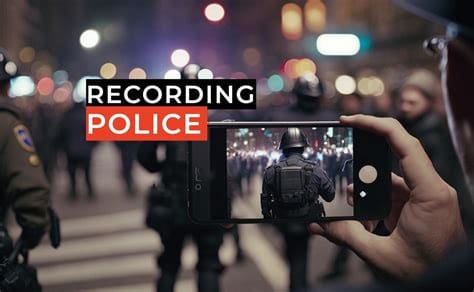
So I released the video with the help of my friends, team, and Indymedia. Indymedia released the video while I was camping in the woods. The next morning I had mainstream media calling me in the woods. News from all over the country was reaching out. The video has gone viral. It was before most people had video cameras on their phones. It was an iPod, it wasn't even a phone. So it was one of the early videotaping police interaction videos that got a ton of attention. So that was completely nuts and really disruptive to my life. I came back to the city and there were news people around my house.
I walked to the library the next day right around the corner from my house. During that time somebody broke into my house. They stole the iPod the video was on, some money from my room, but left my roommates laptops around and nothing else was taken. It was noon on a Tuesday or something. I called the police. I've only been gone for an hour but the door is busted in that I didn't see at first. It was the back door. So I was scared.
So I called the police, and then I immediately got out of the house, called friends. They showed up. The police showed up 45 minutes later with 7 cars and it was just this really weird show of force. There were just so many strange things that happened. Of course I have my guesses for what happened.
There was just so much attention. It was really nuts. Doing all these live interviews. I was flown around a bit as well.
They ended up dismissing the charges against me because there was nothing to them. It was a wild experience, but also pretty scary. I was a babysitter who rode a bike and so I was on my own a lot. I was very vulnerable in the city. If somebody was going to try to rough me up or something. One of the city council members told me as I was speaking out at city council, afterwards, quietly, “you should watch your back. We have some dirty cops in this town”. How scary for me to hear. My job is being alone with children and you're telling me to watch my back, as a city council member.
I had a lot of community support. It really made the cops look bad. They took it hard. The incident got so much media attention and they just really hated me. They had alleged that I was a gang member. They said that I had been talking to them before the video started rolling. The police union president got this wall of cops together, 50 uniformed cops to be at this press conference and tell the world that I had been talking to the cops before the video started taping and making threats against them. That there was evidence that I was a gang member.
The police were very intimidating. They ended up giving a lot of parking tickets to friends in the days after when they were gathered in our community space to help figure out how to respond when the media attention was so high. The police ended up organizing a squad to go out and ticket all the cars on the street for being 13 inches from the curb instead of 12. There was this organized retaliation versus the one cop's bad decision in the moment to arrest me. They were clearly pretty intimidating. They showed up at my house repeatedly. The investigators tried to talk with me, but it was very scary. I don't even know what they would have wanted to talk about, but they came to my house a bunch of times. So cops locked in to hate on me.
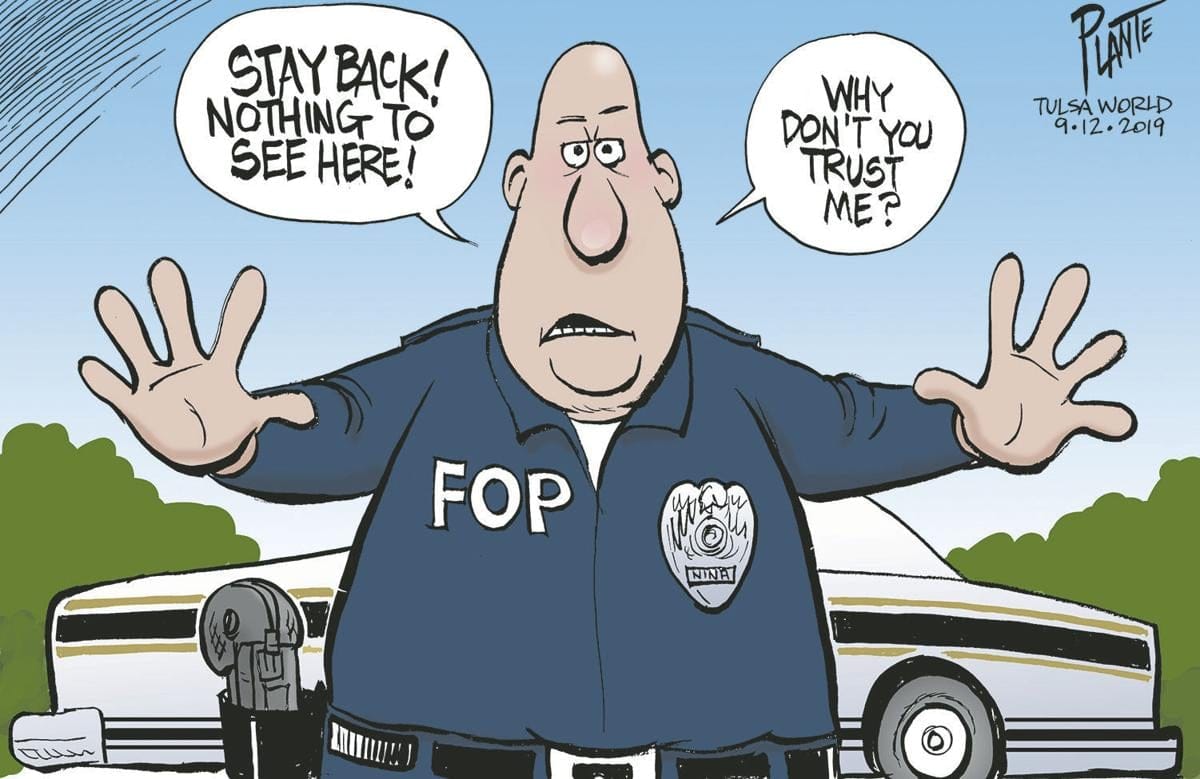
This police union president clearly used his platform to tell lies about me. There were weird right-wing talk show people speculating that I was this plant for the radical community saying things like this blue-eyed angel happens to be an insider infiltrator. It was the weirdest time in my life.
I did end up trying to use the notoriety, which was very foreign to me, for promoting police reform policies. I ran for sheriff a couple years later. Really just to promote body cameras and some restorative ideas. I took some of the interest and attention and tried to run with it.
Eventually life continued on. I dealt with it. I tried to lay low and then I soon ended up in grad school and my focus shifted. My mom was dying while I was in grad school. My life changed. I was not out at the edge of the activist world.
So I settled. I did many years of group therapy and I learned I could handle this. It's many years later. I've become a different person. I have different perspectives. I've been through a lot. I was still interested through all that time, running for sheriff, really interested, and then going to grad school in emergency response. To show that we could do it so much better. This was a passion. It was like the cops really don't deescalate well. I had plenty of other experiences doing civil disobedience and being completely treated terribly by the police myself. Watching other people get treated so badly, unnecessary pepper sprayed, unnecessary verbal escalation, it was so a part of my life knowledge at that point.
I was really interested in working on these teams that had been emerging in the years since all of that happened. My whole incident happened before police reform was as common a conversation. Since then it has really gotten so much bigger and deeper. I loved the idea of being on one of the mental health emergency response teams. I knew some people who worked on one. I ended up applying. During my interview I was pretty open about this colorful history with the police. I talked about it because I was sure that there would be conflict. But I've been doing group therapy. I really feel optimistic about my ability to handle conflict effectively and constructively and how to communicate.
I was putting it out there and initiating that conversation. I don't know if the people who interviewed me knew about my history but I know people on the team knew of this history with the police. They hired me with some awareness. They hired me for an evening job. I was so excited. I was ready to do it for the four years or whatever that I had left in my 10-year, public service loan forgiveness program. I took the evening shift.I was thrilled. It felt so good for the first bunch of days. They immediately send you right out and you're shadowing. I felt I had a lot to contribute. I felt I was really well suited for this job.
Then in the second week, I was offered a full-time job with both the county crisis response team and the city crisis response team. This had been the direction I wanted to go in. I decided on the county one in part because I didn't want to be all up in the Police Departments business. I thought if I could avoid them cause I don't need to be banging heads every day. So I chose the county job, which does sometimes flex into the city when needed.
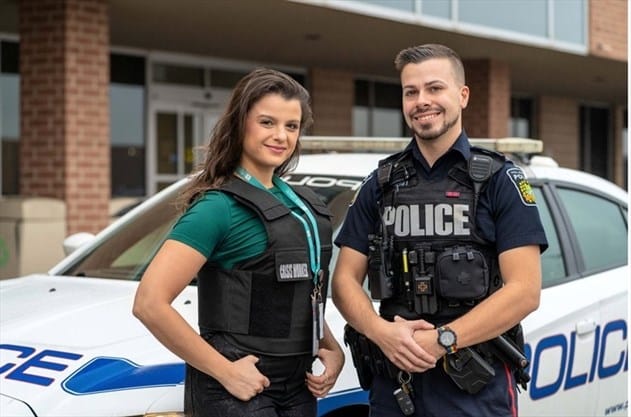
The first few days, we were only in the county working with a town county sheriff and then town police department. You're always interacting with the police in this role because you show up to situations that they have already been in. They clear the scene and then they say this person needs a mental health crisis response.
So in the second week, I was called to the city for the first time. I showed up before the person I was shadowing. We were driving separately because it was the first call of the day. I got out because the police officer saw me show up. He knew who I was immediately. He said, “oh, Roslyn, yeah”. He was an older guy. He'd been around probably on the police force 10 years ago or more. We did the intervention.The person I was shadowing came and we talked to the person in crisis. Then by the end of that day, my supervisor told me that the next day I was supposed to go to a retreat, unexpectedly, rather than show up as planned.
The following day as soon as I walked in, they pulled me into a room and fired me. They said that, unfortunately, we just had to separate employment. I hadn't done anything wrong. But law enforcement had made clear that they would not work with me, couldn't trust me, and that it just wasn't the right fit. I cried. I had just made all these accommodations and long-term plans. I bought my first car for this job. I had never owned a car before. I was committed and ready to do this job. I felt great about it.
I felt like I had been upfront and transparent about where I was and what I expected. At this point, all the police have body cams. I knew that because of my past with the police I was going to have to be fucking great at this job. If I miss one question, they're going to be keeping an eye on me. I need to be great at this. I was ready to rise to the occasion. I was ready to be a fucking crisis therapist.
Then on day 8, I was walked off the job. It was totally humiliating. My benefits ended that day. I had a dental appointment the following day that I had to cancel because I suddenly had no income, no benefits. It was extremely devastating. It had a huge impact on my life. I got really depressed. Where do I go now? This one hospital system union busted me. I'm on their do not hire list for sure.
My boss cried the day they fired me. She pulled me into her office. She was supposed to be walking me out. She was like this is not right. I'm so upset that they did this. I'm furious and I'm so angry. I'm so sorry. Then she walked me out.
I can't get a job anywhere. There's probably a few non-profits I could go to, but I had just been burned. I didn't have any trust at that point. I couldn't escape the feeling that I had still done something wrong. I was suddenly worried about how I was going to pay my bills. I didn't feel like I could trust any of the systems.
I eventually got a lawyer, which was very hard to find a lawyer willing to sue the police and the state. It was “which department are we suing?” Are we suing the county or the city? Because you were hired for the county, but it's the city police that hate you. So far it's been pulling teeth to get any information. They're saying, well, we can't give all those documents, it's either too broad or too narrow.
The lawyer got them to double the amount of money they were going to give me if I sign a do not talk about this document. The organization that hired me was a contractor for the county. So I wasn't directly employed by the county, but our business card said county. Yet again like at the hospital I was in the same office as the director of the office of mental health. We were very intertwined. It was called CCSI, Coordinated Care Services Incorporated, but I basically said that I wouldn't talk about them. I wouldn’t disparage them.
So I eventually went into private practice. Which I had never planned to do. I just didn't feel I had the strength to deal with another system that was going to mistreat me.It took a long time to set up a private practice. You have to get paneled with insurance which takes a long time.

At this point I'm uninsured because I'm in private practice. Money quickly became very stressful and has been pretty stressful for the past two years. I'm doing pretty well. There's of course parts of private practice that I like. I love working with people. You can love the people, however they're coming to you. So I gave up on the chance to do public service loan forgiveness, which is really a huge deal. I just didn't think that I had the risk in me to go back to an organization that could be so unreasonable.
Jeff Jones (Liberation Psychotherapy): I'm reminded of the George Floyd riots. We were in the middle of the riots and all these false promises from the city were made. They were going to do all these reforms and not one real reform happened. There was all this talk about sending out mental health workers with police because most of the calls don't require police. We need people who know how to work with people who are in crisis. It’s usually not a criminal act, it's a mental health crisis, right?
I was always struck by how, as a therapist who's been working for many years. I've never heard them reach out to me or anybody else. How did particular companies get the contract from the city/county to be the mental health crisis team? Because I never saw any public effort to bring in independent mental health teams that were not already aligned with the police department. So no, I do not trust that this is in the best interest of the people. The city/county is doing it in the best interest to shut people up about this approach.
Roslyn: Yeah.
Jeff Jones (Liberation Psychotherapy): You're giving an insider story of this. I imagined that was what it was going to be like from the state. That is not going to be an actual public discourse by asking therapists and mental health workers in general what a community crisis team should be like. Then the public eventually won’t trust these teams. The city/county/state can’t just find the one little pro-police organization, watch as it falls apart, then say, see, it doesn't work.
Roslyn: Yeah.
Jeff Jones (Liberation Psychotherapy): Your story is a great example of a really qualified and dedicated mental health worker who was willing to put themselves, under scrutiny, in front of police cameras and be like, I'm going to do this right. Yet they still fired you.
Roslyn: I felt I had a great set of skills. I'd been working with people who were unhoused for many years. Before that, I had come from a team that dealt with SPMI folks who had frequent interactions with the police. Before taking the job, I went out with some friends who were leaders in the local BLM community. I asked what they think of this work? Should I take this job working with the police? And they said, absolutely. It would help us trust that team to know that you were on it.
We had a high profile police murder a couple of years back. This man, Emerson Woodard (pseudonym to protect all identities). He was killed with a bag over his head, naked, and having a really clear mental health crisis. He had just come to town. His brother called the police because Emerson had shown up and was having a psychotic episode. The police put this bag over his head, and they had him kneeling on the ground in the cold, March day naked. They eventually took him to the hospital.
The hospital did some evaluation and he later died. It took a while for it to come to light. When it came to light, immediately, somehow, the newspapers were publishing Emerson's medical records. Which indicated maybe he was high on PCP. Somebody speculated in the hospital records. But why the fuck do we have his hospital records being leaked? They traced that back to the person who was the head of the FIT team, the team that I eventually got hired on. She was extremely aligned with the police. She was the director of the FIT team.
As a FIT team member, you had access to a lot. You had access to just about everything. You had access to all the medical records, all the police, mental hygiene, transports, everything. So this person who had led the FIT team the night that this incident came to light, used her position to access his medical records. Sent it in the middle of the night to someone high up in the police department, and the police used that in their media defense of themselves.
That gets traced. She ended up either having to resign or was fired. Then she was immediately hired on by the sheriff's department as their liaison of police mental health.
My guess of what happened was that the police officer who recognized me in that first week at FIT talked immediately to either the union president who knows me, and hates me, and he reached out to Coleen Mason (pseudonym). Coleen at this time was the former head of the FIT team. I'm sure still has her people in the office who she knows she can sway.
She clearly violated HIPAA laws. She violated how she was supposed to behave and got rewarded with a great job. I didn't even do anything wrong, and I got fired because I was not going along with the corruption. I wasn't even at that point standing up to the police. I was just there.
Jeff Jones (Liberation Psychotherapy): So, what would you like to see changed? What should mental health workers know?
Roslyn: I think there's a lot of skepticism that's warranted about these programs. Even when they seem they're set up with the best intention to support the people in crisis. I feel foolish in hindsight to be as hopeful as I was. Now I feel really skeptical about how any of this could work out. Similarly, we voted in a police accountability board, in the wake of these past uprisings. Our police accountability board has been handy. But of course it's just been made completely ineffective and every weakness has been exploited. It's just a disaster.
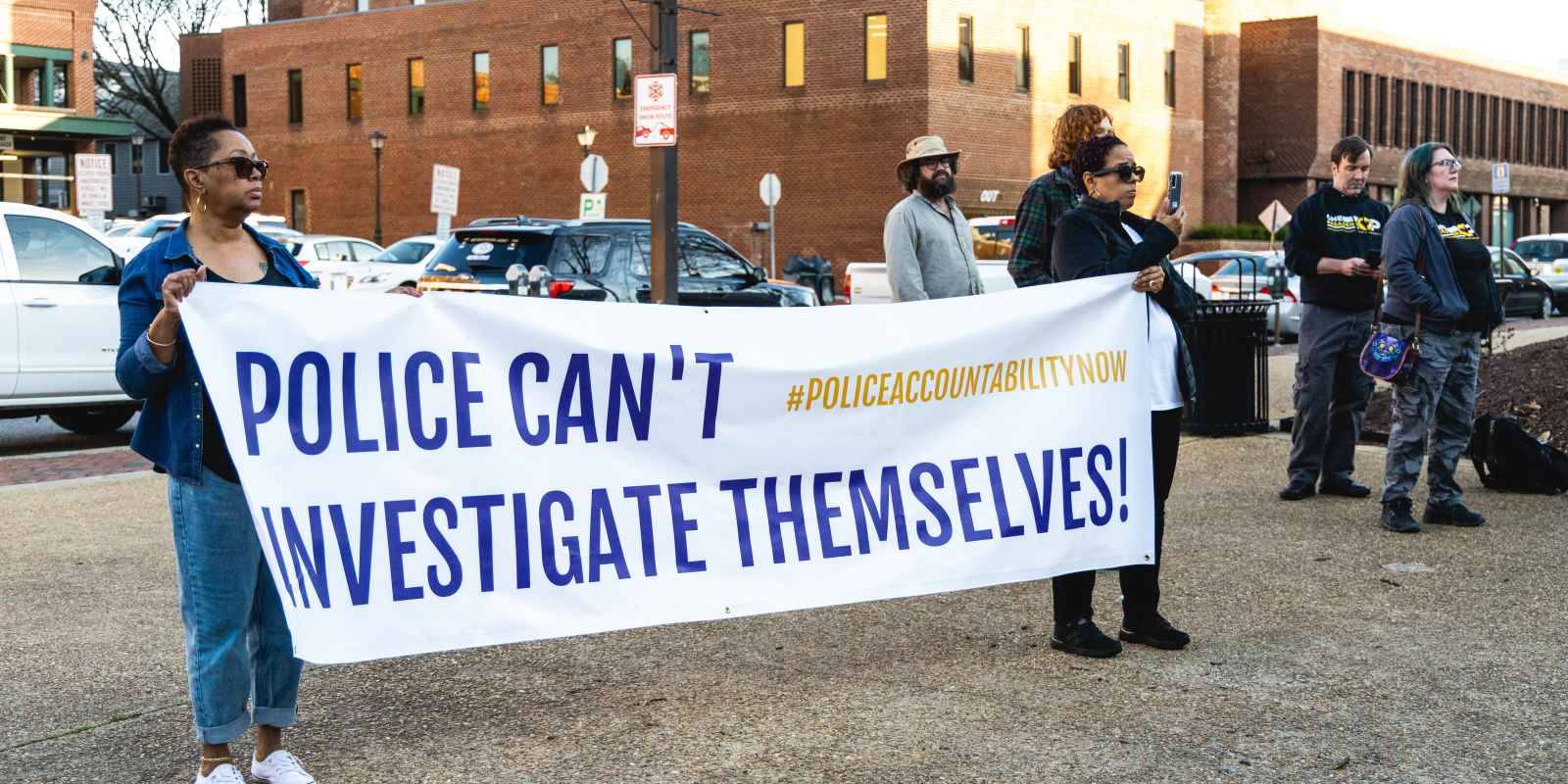
There's this skepticism of how these systems and the people in power will allow these changes going forward. What's supposed to be a balance or a watchdog group I would have a pretty low level of trust of. The conversation needs to find ways to really challenge power. I feel pretty disempowered and lower in hope than I did before these incidents.
Jeff Jones (Liberation Psychotherapy): Thank you so much for telling your story. I hope you are feeling safe.
Roslyn: Thank you for listening. It feels good to just show up and tell the story because it's just outrageous.
Jeff Jones (Liberation Psychotherapy): I believe these stories are part of the practice from second wave feminism of what was called conscious raising.
Roslyn: Thank you. You're great to talk with. I look forward to following more and learning more from some of the stuff that you're working on and sharing.
Jeff Jones (Liberation Psychotherapy): Thank you.
Roslyn: Thanks. You too.
